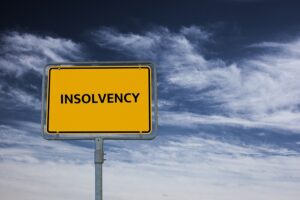Landwärme’s biomethane trading arm enters insolvency

The company announced that business operations in Berlin and Munich - including all 140 employees - will continue until further notice.
Landwärme managing director Zoltan Elek will remain in charge during the upcoming reorganisation phase.
Lawyer Katharina Wilke will support him during this time as the specially appointed restructuring manager.
In addition, Lucas Flöther will accompany the proceedings as general authorised representative.
Both Wilke and Flöther represent the Berlin law firm Flöther & Wissing, which specialises in insolvency law.
In addition, the competent court appointed Gordon Geiser from the law firm GT Restructuring as trustee for the provisional proceedings.
The trigger
According to Landwärme, the insolvency was triggered by market developments in GHG trading.
Since the beginning of last year, prices for GHG quotas had fallen from previously up to 400 euros/tonne of CO2 to below the 120 euros/tonne mark.
This is due to a fraud scandal concerning falsely declared biodiesel and forged certificates for upstream emission reductions, which allegedly caused billions in damage and is now being investigated.
In the eyes of Landwärme CEO Elek, this comes far too late: "These proceedings could have been avoided if politicians and authorities had pursued and combated the suspected cases of fraud in biodiesel and UER projects more consistently," he commented.
Cementing this optimism is the fact that Landwärme's entire other biomethane business beyond GHG quota trading continues to be profitable.
In the past, Landwärme had also grown through shareholdings and takeovers. It had also shown interest in taking over the EnBW subsidiary BMP Greengas. However, the latter was transferred to VNG, which also belongs to EnBW.
Hunt for investment
An external investor is being sought, to bring financial stability to the organisation.
Company sources said that initial talks with potentially interested parties are underway.
The second major element in the ongoing process is the restructuring of contracts with customers from the GHG quota trading business, which are to be adapted to current market conditions or cancelled, according to reports.

















